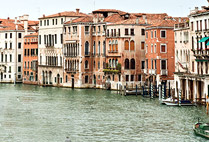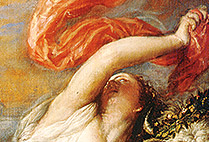Journalist William Worthy, Jr., did whatever it took to get the story. In the 1950s, he scorned US restrictions and traveled to the People’s Republic of China, where he spent 41 days reporting on various aspects of life and interviewed Premier Zhou Enlai.
The former College of Communication professor and 1957 Harvard University Nieman Fellow died on May 4, 2014. He was 92.
Born in Boston on July 7, 1921, Worthy lived in the South End, where he graduated from Boston Latin School and was awarded a Burroughs Newsboys’ Foundation scholarship. He earned a bachelor’s degree in sociology from Bates College in 1942 and began his career as a public relations assistant for A. Philip Randolph, a civil rights activist.
Worthy considered himself to be “anti-colonialist, anti-militarist, anti-imperialist” and claimed conscientious objector status during World War II. He worked for the Baltimore Afro-American, a weekly newspaper, from 1953 to 1980, and wrote global stories with perspectives not widely understood or accepted in the United States. He also contributed as a freelancer to CBS News and to many newspapers.
When Worthy returned from his illegal trip to China, the State Department refused to renew his passport. Four years later, and without a valid passport, he slipped into Cuba to report on Fidel Castro’s revolution. He interviewed Castro and helped to produce an ABC-TV documentary, Yanki, No! Upon his return to the United States, he was arrested and convicted of illegally entering the country; his conviction was overturned by a federal appeals court.
His legal battle was immortalized in Phil Ochs’ protest song “The Ballad of William Worthy” in his 1964 debut album, All the News That’s Fit to Sing. It wasn’t until 1968 that Worthy was granted another passport.
Worthy faced off with the US government again in the early 1980s, reporting from Iran after Ayatollah Khomeini’s Islamic revolution. When he returned with copies of documents stolen from the US Embassy in Tehran during the hostage crisis, US authorities seized them. With the help of outside agencies, Worthy and his colleagues sued the FBI and the CIA and won $16,000 in Fourth Amendment damages from the seizure of the documents, stating that “Americans have a right to know what’s going on in the world in their name.”
Worthy interviewed dozens of world leaders, among them Nikita Khrushchev, Malcolm X, and Martin Luther King, Jr. (GRS’55, Hon.’59). He reported from areas where few reporters were permitted, including the Soviet Union, North Vietnam, and Cambodia.
In 1976, Worthy published The Rape of Our Neighborhoods: And How Communities Are Resisting Take-overs by Colleges, Hospitals, Churches, Businesses, and Public Agencies (Morrow).
Worthy taught journalism at Boston University in the late 1970s, but left the University after conflicts with the administration. He also taught at several academic and advocacy institutions, including the University of Massachusetts, Howard University, and the National Whistleblowers Center.
In addition to his Nieman Fellowship, Worthy was awarded a Ford Foundation grant, and several freedom of the press awards. In 2008, he was presented with the Lyons Award for Conscience and Integrity in Journalism by the Nieman Foundation for Journalism. Then-Nieman Foundation Curator Bob Giles praised Worthy for his dedication to freedom of the press both in the United States and abroad. “Throughout his life in journalism,” Giles said, “Bill Worthy demonstrated a remarkable spirit of courage and independence in his determination to inform readers about places our government wanted to keep hidden from public view.”













































Related Stories
Revisiting the Spirit of ’67
BU’s Tom Whalen explores the dramatic birth of Red Sox Nation a half-century ago
Leader in the Digital Revolution Will Teach It at COM
Martin Nisenholtz was the New York Times digital guru
Six Quotes from BU Entrepreneurs to Ignite Your Innovative Spirit
At BU IDEA 2019 conference, start-up founders reveal how they are making an impact
Post Your Comment